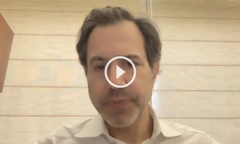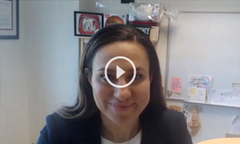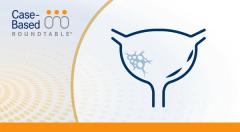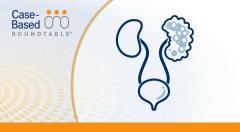
Nivolumab Shows Improved DFS in ITT and PD-L1–High Bladder Cancer
Matthew Galsky, MD, discusses the disease-free survival of nivolumab vs placebo in patients with high-risk muscle-invasive bladder cancer.
Episodes in this series

Matthew Galsky, MD, professor of medicine (hematology and medical oncology), director of genitourinary medical oncology, codirector of the Center of Excellence for Bladder Cancer, and associate director for Translational Research at The Tisch Cancer Institute at Mount Sinai in New York, discusses the efficacy of adjuvant nivolumab (Opdivo) in the phase 3 CheckMate 274 trial (NCT02632409).
Results from the randomized, double-blind, multicenter CheckMate 274 study were initially published in The New England Journal of Medicine looking at disease-free survival (DFS) in all patients and patients with PD-L1 expression of 1% or higher as the primary end points. Investigators demonstrated that patients with high-risk muscle-invasive bladder cancer experienced longer DFS with adjuvant nivolumab compared with placebo after radical surgery. This was seen in the intention-to-treat (ITT) population and those with positive PD-L1 expression, according to Galsky.
Nivolumab continued to show benefit over placebo for patients’ DFS, non–urothelial tract recurrence-free survival, and distant metastasis-free survival in the extended follow-up of these data. Results for CheckMate 274 were updated at the 2023 American Society of Clinical Oncology Genitourinary Cancers Symposium.
Transcription:
0:08 | In the initial report of CheckMate 274 where the coprimary end points were reported, the median follow-up was about 5.9 months and DFS in the all-comer population was significantly improved with adjuvant nivolumab vs placebo, with an HR of 0.7. In the patients with tumors with high levels of PD-L1 expression, the effect size was a bit larger, and the HR for DFS was 0.55.
0:40 | This study has now been analyzed with longer-term follow-up, so now there's a median follow-up of about 3 years, and the effect size in both the ITT population and in patients with tumors with high PD-L1 expression is virtually identical to what it was with the initial report of the data.













































